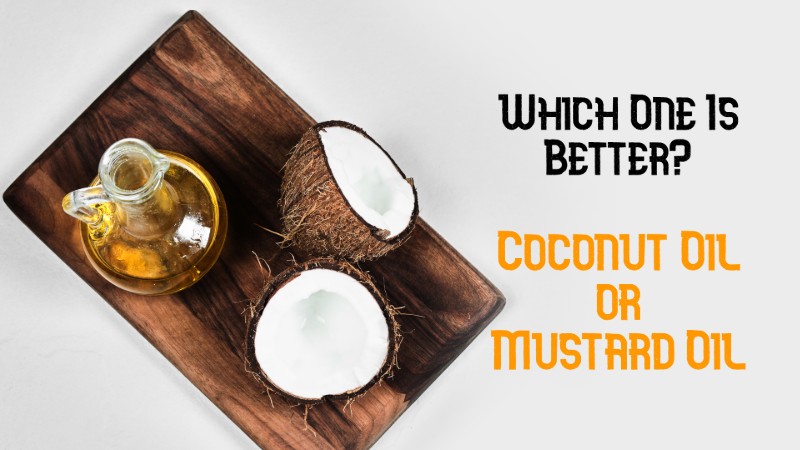Selecting an appropriate cooking oil is one of the critical factors in a healthy lifestyle. As the gluttony grows, we have become slaves to several varieties of oils but the two oils that have been around for centuries are Coconut Oil and Mustard Oil. Both have unique health benefits, cooking versatility and cultural significance to celebrate about, but which one is better? In this article, we will definitely get the answer to the question “Coconut Oil vs Mustard Oil – Which One Is Better?”
Understanding the Basics
Before we get into how they differ, let’s start with the origin and some basic properties of these oils:
Both oils are natural, plant-sourced and adaptable, but serve different tastes and purposes. Let’s compare their features to see which is right for you.
Coconut Oil vs Mustard Oil: Which One Is Healthier?
Coconut Oil vs Mustard Oil- Culinary Uses:
Nutritional Composition: Coconut Oil vs Mustard Oil
- Calories per tablespoon: 120
- Saturated fat: 92%
- Monounsaturated fat: 6%
- Polyunsaturated fat: 2%
- Calories per tablespoon: 120
- Saturated fat: 12%
- Monounsaturated fat: 70%
- Polyunsaturated fat: 18%
Coconut Oil vs Mustard Oil
Feature
Coconut Oil
Mustard Oil
Smoke Point
~350°F
~480°F
Flavor Profile
Mild, sweet
Bold, pungent
Primary Fat
Saturated fats (MCTs)
Monounsaturated fats (MUFA)
Best For
Baking, frying, skincare
Deep frying, pickling, massagel
Health Benefits
Boosts metabolism, immunity
Supports heart health, reduces inflammation
Sustainability and Environmental Impact:-
Coconut oil production often takes criticism for its environmental destruction, such as deforestation and habitat loss. Sustainably sourced coconut oil circumvents these problems.
Mustard Oil production has a relatively lower environmental footprint and basically grown in local sustainable farming systems in India and South Asia.
Conclusion
Both Coconut Oil or Mustard Oil are great yet have different advantages. Coconut Oil vs Mustard Oil is not a debate that aims to find the winner.
We bring you the best mustard oil from Sonali Oil that will help you to improve your cooking, skin care and health. If you want to know about the products of Sonali Oil, click here and add the health benefits of mustard oil to your life.
So this is the correct choice for you today, let this, the natural oil enrich your life!




